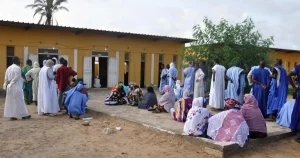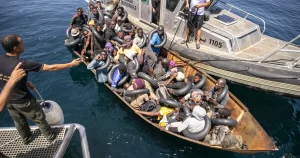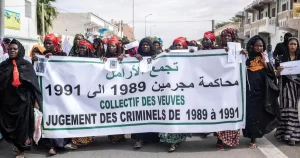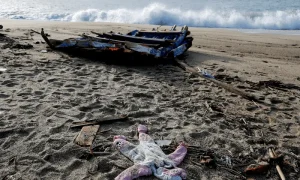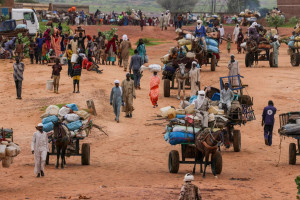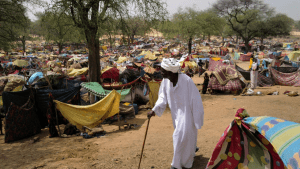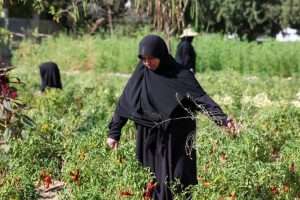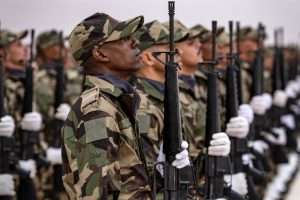Remains of five people uncovered in Libyan desert

The bodies of five people, assumed to be migrants, have been recovered in the desert of eastern Libya, according to The New Arab plus agencies on September 26th.
According to local aid groups, the bodies were decomposed and were located approximately 550 kilometres south of Tobruk, in an area called the Great Sand Sea.
The recovered remains were transported to Tobruk according to the Red Crescent, who remarked upon the “grave dangers faced by migrants travelling through the desert, the so-called ‘death journey’”.
Libya has long been a hub for migration into Europe, with many across the continent travelling to Libya seeking refuge from poverty and conflict, before embarking on a treacherous journey across the Mediterranean.
Other factors have emerged that are contributing to increasing migration flows from Libya, such as climate change. Climate change is a significant factor in increasing migration into Libya and Europe, through exacerbating food insecurity and erosion of farmland.
Abreen is a local aid group that tracks migrant deaths in Libya, and said the remains were likely to belong to Sudanese migrants.
It is the latest tragic incident involving Sudanese migrants fleeing the conflict in Sudan. In May 2025, at least seven Sudanese migrants died after a vehicle carrying 34 people broke down in the Libyan desert after crossing the border from Chad.
The endemic presence of armed groups and human trafficking networks exploiting migrants further endangers their safety and often leads to human rights violations in arbitrary detention centres, an issue which the Libyan government is attempting to tackle, but with little success.
In 2024, the International Office for Migration (IOM) recorded more than 1,000 deaths and disappearances in Libya, highlighting how both Libya’s expanse of desert and political instability, empowering armed groups, jeopardise the safety of migrants looking to reach Libya and Europe.
The New Arab plus agencies, Maghrebi.org, InfoMigrants
Want to chase the pulse of North Africa?
Subscribe to receive our FREE weekly PDF magazine





